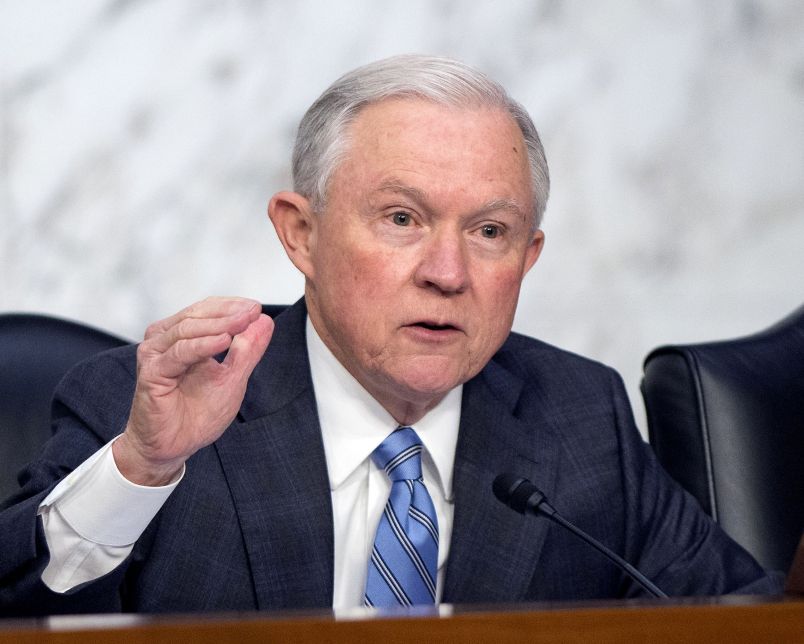Leaders of civil rights organizations on Friday reasserted their criticisms of attorney general nominee Jeff Sessions as unqualified for the role, and urged his Senate colleagues to put the Alabama Republican’s record to a thorough vetting.
Sessions’ hearing is set to begin Tuesday and he is expected to be confirmed in the GOP-controlled chamber. Two days of testimony are scheduled, including a day for Sessions to address the committee, and a day for rebuttal witnesses from those opposing his nomination.
Echoing Senate Democrats, the civil rights groups want to delay the hearing. They say the Judiciary Committee needs more time to review his voluminous nomination materials, which they also say may be incomplete.
“The hearing has to be meaningful,” said Sherrilyn Ifill, president of the NAACP Legal Defense and Educational Fund, who rejected any suggestion that the hearings are a foregone conclusion. “The point of the hearing is to reveal who the candidate is and to inform and educate the senators about his qualifications. It’s an opportunity for the Senate to actually do its job. They haven’t been in Alabama. They don’t know everything about his record.”
Wade Henderson, president of The Leadership Conference on Civil and Human Rights, added, “Collegiality is no substitute for the constitutional requirement of advice and consent. That is a standard we expect the committee to adhere to.”
Some also noted the timing of the hearing, expected to last two days and coming ahead of the Martin Luther King Jr., federal holiday on January 16.
Sessions, 70, was born and raised in Selma, Alabama — regarded by many as the crucible of the 1965 Voting Rights Act and scene of “Bloody Sunday,” where blacks were beaten during a peaceful protest as they attempted to cross the Edmund Pettus Bridge.
“For many of us, it’s a clear reminder that we are continued to be called to action,” said Janet Murguia of La Raza. “We need an attorney general who understands the experiences of all Americans, who sees our community as part of this country. He demonstrates again and again that he is not that person.”
The Rev. Al Sharpton, head of the National Action Network, plans to lead a march on January 14 that will begin at the Martin Luther King Jr. Memorial in Washington.
Earlier this week, NAACP President Cornell William Brooks was among several people arrested after a sit-in protest in Sessions’ Mobile, Alabama, office. While he declined to elaborate on specific plans, he said the action was “not a one-off.”
“You can expect an escalating campaign of opposition,” Brooks said.
Sharpton added that members of his organization could make “house calls” to senators their districts in coming days ahead of the final vote to encourage them to reject Sessions’ nomination.
Since November, the groups have expressed alarm at several of the picks by President-elect Donald Trump for his administration, saying they threaten national unity and could unravel decades of progress for racial, religious and sexual minorities. But they have especially balked at Sessions’ nomination, calling him racially insensitive and hostile to civil rights issues.
Among the reasons they cite as to why the lawmaker is unfit for the role are his stances on voting rights, the use of federal consent decrees and immigration. They also point to Sessions being denied a federal judgeship in 1986 after hearings in which he was accused of making racially-charged remarks as a U.S. attorney.
___
Errin Haines Whack covers urban affairs for The Associated Press. Follow her on Twitter at http://www.twitter.com/emarvelous
Copyright 2017 The Associated Press. All rights reserved. This material may not be published, broadcast, rewritten or redistributed.









